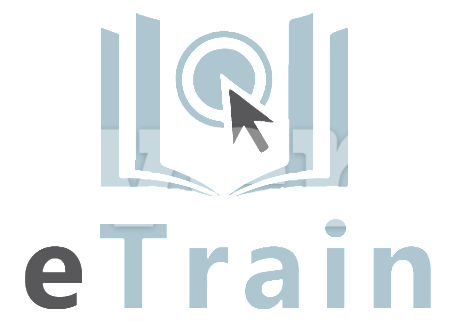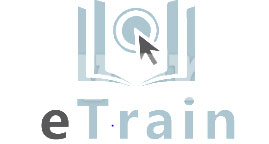Description
PRINCE2® passport is an accredited distance learning option that allows businesses and their staff to invest in flexible, affordable project management training. This Practitioner level course assumes an understanding of the PRINCE2® method and the elements within in, and tests candidates on how they can apply and tailor it to common business scenarios. Once qualified, project managers will be apply to run and manage a project within a PRINCE2® environment. This popular project management method is widely adopted by the UK government and international private sector businesses, and allows them to achieve consistent and effective project management across the board.
What Does This course cover?
The course and exam bundle will include comprehensive modules focusing on the themes and processes involved in PRINCE2® and the roles and responsibilities of a project manager. Practitioner-based content will focus on simulated PRINCE2® environments and how to deal with issues, or tailor the methodology to specific project needs.
Why Invest In This Course?
Buying a course and exam is a convenient choice, and the distance learning option also presents savings over other PRINCE2® courses. Students get access to full support, test exam questions and simulations throughout the modules, and supporting material to ensure they are fully prepared for the exam.
KEY LEARNING POINTS
To complete all PRINCE2® practitioner level content and pass the end of course accredited examination. Course content is split into modules and includes:
Introductory Modules
- Introducing the concept of project management, the definition of a project, and projects vs. programmes.
- Addressing the reasons projects fail.
- A look at the PRINCE2® structure, including the themes, 7 main principles, the process model, and how to integrate processes and themes.
Processes – Starting Up & Initiating A Project
- Activities and management involved in starting up a project.
- Logs and Briefs, including daily and lessons logs and the Project Brief.
- Project based product descriptions, and outline business case.
- Activities involved in initiating a project, including management strategies and risk, issue and quality registers.
Controlling A Stage & Managing Product Delivery
- Issue and Checkpoint reports, plans, product descriptions and other activities and management products.
- A look at configuring item records, the product status account, lesson log, along with highlight report and work packages.
- A look at managing product delivery, including work packages, checkpoint reports, the quality register and team plan.
Directing A Project
- Objectives in project direction and how project direction aligns to the seven PRINCE2® principles.
- Responsibilities involved in the project direction process.
- Activities involved in project direction including end stage assessments.
Managing A Stage Boundary
- A look at the management activities and products, including stage plans and end stage reports, exception plans, and a lessons report.
Project Closure
- Closing a project and the activities involved, end of project reports, and the benefits review plan all feature in this module.
Themes Modules
- Organisation Theme – Examine organisation structure, the roles of a project board, project assurance, change authority, project based support, and the roles of a project and team manager.
- Business Case Theme – Get to grips with outputs and outcomes, benefits, the different types of business case, and the business review plan.
- Risk Theme – How to put together a risk management strategy, the risk register, and a look at risk responses. Content also includes appetite and tolerances, and risk budget.
- Plans Theme – The project, stage and team plans and product based estimating, planning and scheduling.
- Quality Scheme – Quality management strategy, customer quality expectations and acceptance criteria, and the quality audit trail. A look at project assurance v quality assurance also features.
- Change Theme – The issue and change control procedure in PRINCE2®, different types of issues, change budget and authority, and the configuration management strategy.
- Progress Theme – This includes delegating authority, a look at management stages in a project, event and time based project controls, reviewing progress, and escalating issues.
Examination Approaches
- Practitioner exam simulation and preparation.
- Frequent use of or referral to the PRINCE2® manual.
- Interactive adaptive reasoning feedback to help you prepare
PLEASE NOTE: Exam is valid for 6 months.
ADVANTAGES OF THIS COURSES
- All modules use a range of visuals, practical and interactive tasks, visual mind maps and sample exam simulations to help the learning experience.
- Latest 2017 version of PRINCE2®.
- Full access to additional resources, and support while you learn.
- Many of the modules include tips on how to tailor the theme or process to business needs.
- Affordable exam and course package that’s accessible from any location.
- Students can learn at their own pace and integrate the course easily into their schedule
- A wise investment for any business looking to train staff in this popular project management method.
- An easy route to becoming a certified PRINCE2® practitioner.
- Learn many practical tips for applying the PRINCE2® method in the workplace.
- Refresh and update your knowledge of PRINCE2® terminology and processes.
PRINCE2® 2017 also comes with additional benefits.
- The ability to track progress throughout the course.
- Benefit from end of module assessments.
- Expert content delivered by professional TV presenters.
- Built in HTML5 compatibility with high quality graphics.
- Android and iOS compatible.
- A range of social features in the e-learning environment, and points and badges to earn while completing tasks.
Invest in this e-learning PRINCE2® practitioner course and exam today, for project management success.
The Swirl logo™ is a trade mark of AXELOS Limited, used under permission of AXELOS Limited. All rights reserved.
PRINCE2® is a trade mark of AXELOS Limited, used under permission of AXELOS Limited. All rights reserved.
Our PRINCE2® courses are offered in association with SPOCE Project Management Ltd.
- Learning Objectives
- What is a Project?
- What is Project Management?
- Why PRINCE2®?
- Reasons Why Projects Fail?
- Addressing Project Failure
- What is a Programme
- Projects in Context – Portfolio
- Module Summary
- Introduction to PRINCE2®
- PRINCE2 Background
- PRINCE2 Structure
- The Seven Principles
- The Seven Themes
- The Seven Processes
- Process and Themes Integration
- Process Model
- Tailoring and Embedding
- Module Summary
- SU Process – Activities
- SU Process – Activities and Outputs
- SU Process – Task
- IP Process – Activities
- IP Process – Activities and Outputs
- IP Process – Task
- Module Summary
- CS & MP Processes – Learning Objectives
- CS Process – Activities
- CS Process – Activities and Outputs
- CS Process – Task
- MP Process – Activities
- MP Process – Activities and Outputs
- MP Process – Task
- Module Summary
- DP, SB & CP Processes – Learning Objectives
- DP Process – Activities
- DP Process – Activities and Outputs
- DP Process – Task
- SB Process – Activities
- SB Process – Activities and Outputs
- SB Process – Task
- CP Process – Activities
- CP Process – Activities & Outputs
- CP Process – Task
- Process / Timeline Relationship
- Module Summary
- Organization Theme – Learning Objectives
- Organization Theme and the Principles
- The Four Levels of Management
- The Project Management Team
- Project Board
- User and Supplier Groups
- Project Assurance
- Change Authority and Change Budget
- Project Manager
- Team Manager
- Project Support
- Tailoring Organization
- Module Summary
- Business Case Theme – Learning Objectives
- Business Case Theme and the Principles
- Definition: Output, Outcome, Benefit and Dis-benefit
- Types of Business Case
- Tailoring Project and Programme Business Cases
- Business Case Development Path and Benefits Management Approach
- Benefits Management Approach
- Tailoring Business Case
- Module Summary
- Learning Objectives
- Risk Theme and the Principles
- Threats and Opportunities
- Risk Management Approach
- Risk Register
- Risk Management Procedure Technique
- Risk Response Types
- Risk Budget
- Tailoring Risk
- Module Summary
- Plans Theme – Learning Objectives
- Plans Theme and the Principles
- Plans Defined
- Plan Purpose and the 3 Levels of Plan
- PRINCE2 Approach to Product-Based Planning
- Management Stages VS Delivery Steps
- Defining & Anlyzing the Products
- Product Breakdown Structure
- Product Description
- Example Product Flow Diagram
- Identifying Activities & Dependencies
- Preparing Estimates
- Preparing A Schedule
- Resourcing the Plan
- Analyze Risks to the Plan
- Documenting a Plan
- MoSCoW Prioritization Technique
- Tailoring Plans
- Module Summary
- Quality Theme – Learning Objectives
- Quality Theme and the Principles
- Quality Defined
- Project Assurance VS Quality Assurance
- PRINCE2 Approach to Quality
- The Quality Audit Trail
- Customer Quality Expectations, Acceptance Criteria and the Project Product Description
- Quality Management Approach
- Product Description
- Quality Responsibilities
- Quality Register
- Quality Control – Quality Methods
- Quality Review Technique
- Quality Review Team Roles
- Quality Review Technique
- Tailoring Quality
- Module Summary
- Change Theme – Learning Objectives
- Change Theme and the Principles
- Management Products and Baselines
- Why Manage Change?
- Change Control Approach
- Types of Issue
- Issue and Change Control
- Change Authority and Change Budget
- Issue and Change Control Procedure Technique
- Issue Register and Issue Report
- Configuration or Asset Management
- Tailoring Change
- Module Summary
- Progress Theme – Learning Objectives
- Progress Theme and the Principles
- Delegating Authority via Tolerance
- Project Controls
- Decision Points for Progress Control
- Control Types and Baselines
- Workpackage – Baseline for Control
- Management Products for Reporting
- Checkpoint Report
- Highlight Report
- Exception Report
- Raising Exceptions
- Tailoring Progress
- Module Summary







Afolabi –
very precise and straight to the point. enough examples and practise work. simply amazing